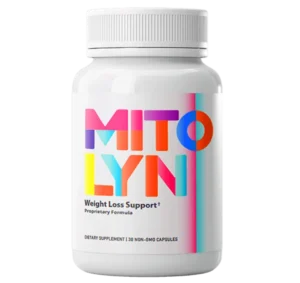10 Surprising Liver Benefits of Milk Thistle
Silybum marianum, commonly known as milk thistle, has been used for centuries for its medicinal properties, particularly concerning the liver. This robust plant holds remarkable surprises for those seeking natural ways to enhance liver function. Despite being a staple in traditional medicine, the modern world is only beginning to appreciate its potential. As the liver works tirelessly to detoxify the body, milk thistle provides a supportive role, promoting health and vitality. Delve into the myriad advantages this herb offers and discover how it benefits liver health in wonderfully unexpected ways.
A History of Healing: Milk Thistle Origins
The legacy of milk thistle is woven deeply throughout history, celebrated for its remarkable medicinal properties. Known scientifically as Silybum marianum, this thorny plant has been a symbol of healing across various ancient cultures. The plant’s leaves, adorned with striking white veins, trace a folkloric lineage to the Virgin Mary, earning its common name, ‘milk thistle.’ Its medicinal applications, particularly for liver health, have been heralded for centuries.
The earliest records date back to Greco-Roman times, where it was prized as a soothing remedy for a variety of ailments. Renowned physicians like Pliny the Elder and Dioscorides extolled its virtues as a treatment for venomous bites and to expel excess bile. This marked the beginning of milk thistle’s reputation as a potent liver tonic.
In medieval Europe, milk thistle’s use expanded within monastic gardens where it was cultivated for its healing properties. During this time, the herb became integral to medieval herbalism, applied for liver detoxification and protection against hepatotoxins. The burgeoning field of herbal medicine further cemented its status as a critical agent in supporting liver health.
As the world entered the Renaissance, interest in herbal medicine experienced a renaissance of its own. Herbalists advocated for milk thistle as a cornerstone in treating liver disorders, cementing its utility in safeguarding liver function. This practice continued to echo through the ages, corroborated by both anecdotal and empirical evidence.
Despite the advent of modern medicine, milk thistle has not lost its luster. It consistently appears in contemporary alternative medicine as a natural supplement for reinforcing liver health. Its primary active compound, silymarin, is thought to provide antioxidant, anti-inflammatory, and liver-protective benefits, which modern studies increasingly support.
Milk thistle’s journey from ancient remedy to modern-day liver savior illustrates the enduring value of ancient medicinal practices. The historical reverence for this herb continues to be validated by contemporary research, underscoring its role in liver detoxification, repair, and regeneration. As scientific exploration progresses, milk thistle’s contributions to liver health remain ever relevant.
For an exposition on contemporary health supplements enhancing liver function, consider exploring Enhancing Flexibility with Open Source.
For further insights on this herb’s profound impact, explore its A History of Healing: Milk Thistle Origins.
Mitolyn Product
Milk Thistle and Liver Detoxification
Milk thistle, a plant belonging to the daisy family, holds a powerful secret within its seeds known as silymarin. This potent compound comprises several flavonolignans, predominantly silybin, isosilybin, and silychristin. These components work together to provide the liver with robust support in its detoxification process. The liver, a crucial organ for filtering toxins from the bloodstream, benefits immensely from the protective shield that milk thistle offers.
Silymarin acts as an antioxidant, neutralizing free radicals and reducing oxidative stress on the liver cells. This effect is crucial because liver damage often stems from the constant exposure to toxins and pollutants. By mitigating oxidative damage, silymarin supports the liver’s ability to regenerate itself, enhancing its natural detoxification functions.
Furthermore, research suggests that silymarin can bolster the liver cell walls, thereby preventing toxins from penetrating these vital cells. This protective feature ensures that harmful substances do not interfere with the liver’s role in processing and eliminating chemicals. Additionally, silymarin promotes the production of glutathione, a critical antioxidant found in high concentrations in the liver. Glutathione plays a significant role in detoxifying a plethora of harmful compounds, thus elevating the liver’s efficiency in expelling toxins.
Interestingly, silymarin also has anti-inflammatory properties, further aiding the liver in its struggle against inflammation caused by toxins. Chronic inflammation can exacerbate liver damage, hence, milk thistle’s ability to reduce inflammation is an asset for liver health.
Incorporating milk thistle into a holistic liver health regimen can thus support the organ’s detoxification processes and shield it from potential threats. However, it’s essential to approach this plant with an understanding of individual health needs and consider professional guidance. For more insights on liver health, you may find more information here.
Moreover, the broader benefits of milk thistle in liver detoxification underscore the importance of integrating natural aids into our lifestyle to enhance overall well-being. As more individuals explore alternative health options, milk thistle stands out as an accessible means to protect and empower the liver’s natural detox abilities. Learn more about Milk Thistle and Liver Detoxification on Wikipedia.
Mitolyn Product
10 Surprising Liver Benefits of Milk Thistle
Milk thistle, a robust herb known for its liver-supporting prowess, offers numerous scientifically backed benefits. Here are ten unexpected perks of integrating milk thistle into your wellness routine.
- Liver Detoxification: Milk thistle is celebrated for its potent antioxidant properties, which help eliminate toxins, enhancing the liver’s detox process. This makes it particularly beneficial in supporting liver health amidst exposure to environmental and dietary toxins.
- Cell Regeneration: The herb contains silymarin, a powerful compound that promotes new liver cell growth. This can potentially reverse liver damage by stimulating the regeneration of cells and tissues.
- Chronic Disease Prevention: Regular consumption of milk thistle is linked to reducing inflammation, which plays a crucial role in preventing chronic liver diseases like cirrhosis and fibrosis, offering a precautionary measure for long-term liver health.
- Liver Function Improvement: Clinical studies have shown that silymarin can improve liver function tests, indicating better bile production and nutrient absorption, essential for overall health.
- Protection against Liver Damage: Traditional medicine has used milk thistle to protect the liver during alcohol consumption. It acts as a shield against toxins, reducing liver stress and potential damage.
- Cholesterol Regulation: There’s evidence suggesting that milk thistle may help maintain cholesterol levels, indirectly benefiting liver health as the liver plays a pivotal role in cholesterol synthesis and regulation.
- Support for Fatty Liver Disease: Non-alcoholic fatty liver disease can be mitigated with milk thistle, as its inflammation-reducing capabilities can slow disease progression and promote liver health.
- Insulin Resistance Aid: The herb’s anti-inflammatory and antioxidant properties may improve insulin resistance, indirectly supporting liver health by managing risk factors associated with liver disease.
- Hepatitis Management: Anecdotal evidence from traditional uses suggests milk thistle may be beneficial for people living with hepatitis, providing symptomatic relief though should be paired with medical treatment.
- Improved Digestive Health: By enhancing bile flow, milk thistle supports digestion, which is crucial for liver function since an efficient digestion process reduces the liver’s workload.
For those exploring natural avenues for liver health, 10 Surprising Liver Benefits of Milk Thistle exemplifies nature’s healing potential. You can further explore how certain supplements may enhance your well-being
Mitolyn Product
Scientific Insights: Research on Milk Thistle
Milk thistle, scientifically known as Silybum marianum, has garnered significant attention from researchers exploring its potential benefits for liver health. At the heart of milk thistle’s therapeutic properties is silymarin, a complex of antioxidant compounds believed to protect liver cells from toxins, reduce inflammation, and promote cell repair. Over recent decades, a wealth of scientific studies has explored these effects, with promising outcomes.
A foundational study published in the “Journal of Hepatology” highlighted silymarin’s effectiveness in reducing liver inflammation in patients with chronic liver disease. The study found that individuals receiving milk thistle extract experienced significant improvements in liver enzyme levels, suggesting enhanced liver function. These findings underscore milk thistle’s role as a protective agent against liver disease progression.
Research conducted by the “National Center for Complementary and Integrative Health” examined milk thistle’s potential to ameliorate liver damage in patients with hepatitis. Initial results indicated that silymarin may help decrease liver enzyme levels and improve overall liver function. Although these findings are promising, the study emphasized the need for more extensive clinical trials to confirm these benefits in larger populations.
Ongoing research continues to delve into new applications of milk thistle, particularly its potential to safeguard the liver from oxidative stress. Scientists at the “Liver and Pancreas Institute” are investigating milk thistle’s efficacy in counteracting the hepatotoxic effects of chemotherapy. Preliminary results suggest that silymarin may mitigate liver damage, offering hope for its inclusion in supportive care regimens.
Despite these advancements, it is essential to remain cautious. Some studies, such as those funded by governmental health bodies, highlight variability in results, partly due to differences in study design, silymarin dosage, and patient populations. Thus, while milk thistle holds promise, ongoing research is crucial to fully understand its therapeutic scope and thoroughly establish dosage guidelines.
For those intrigued by the broader implications of herbal treatments for liver health, exploring Scientific Insights: Research on Milk Thistle can further illuminate milk thistle’s evolving narrative in modern medicine.
Mitolyn Product
Final words
Milk thistle continues to prove itself as a valuable ally in liver health, supported by centuries of usage and modern scientific research. Its detoxifying and regenerative properties make it an integral part of natural health regimens. By incorporating milk thistle into your routine, you can take a proactive step towards maintaining liver wellness. Whether it’s through enhancing detoxification or promoting regeneration, milk thistle stands as a testament to nature’s prowess in fortifying our internal cleansers.
Take control of your liver health today with Natural Product Supplement haematococcus for added antioxidant support.
Learn more: https://pleasureinhealth.com/product/mitolyn/
Special Offer
A powerful antioxidant that supports joint health and immune function.




